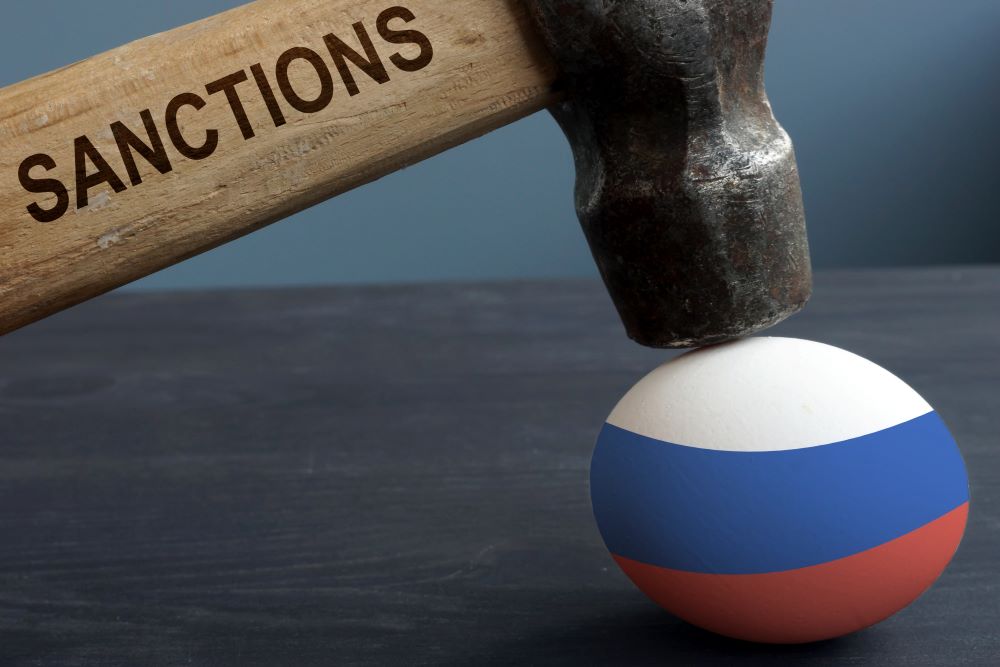
The government’s Export Control Joint Unit (ECJU) has published fresh guidance warning traders that additional due diligence is needed to prevent sanctions being evaded in their supply chains.
As reported by the IOE&IT Daily Update, the UK and fellow G7 allies have agreed to impose more sanctions against Russia for its illegal invasion of Ukraine.
While it represents a slight step back from a mooted total-ban on exports to Russia, the list of sanctioned goods is set to expand significantly and will include industrial equipment, diamonds and metals.
In addition, governments around the world are reportedly cracking down on sanctions-busting tactics that have seen goods exported to third-party nations before being re-exported to Russia.
Displacement and diversion
The ECJU is warning that traders should consider the risks of this “trade diversion” when carrying out due diligence on any exports.
The unit notes that the true end-users of procured goods are unlikely to be named on paperwork and will probably not approach suppliers directly. Instead, intermediary companies or dummy end-users are commonly used instead.
Sam Hodgkins, a customs expert at the Institute of Export & International Trade (IOE&IT), said:
“Russia’s invasion of Ukraine has brought home just how important due diligence is. It is vital that businesses do everything that they can to ensure they know the end use and end user of their goods. Ultimately, the cost for not doing so can be peoples’ lives”
“If you deal in controlled goods, it is your responsibility to carry out due diligence. Now more than ever, it is vital that you know end country, end use and end user.
“Traders should make due diligence a part of their internal compliance programme ASAP if they’re not already doing so.”
Traders will need to show “strong due diligence on counterparties and internal governance”, even with established partners, to uncover any discrepancies and avoid accidentally sending goods to a sanctioned country, company or individual.
Typical covert operation
According to the ECJU, a typical covert procurement cycle would look something like this:
- Goods would be sourced from specialist manufacturers or distributors
- An overseas trading company would be used as an intermediary at first, often claiming to be the end-user. The ECJU stresses that such companies could well have legitimate business and is not necessarily complicit themselves
- A front company, acting on behalf of the sanctioned entity, would receive the goods. This company could well be named on paperwork as the end user.
- The goods would be delivered to the “true end-user”, a sanctioned destination, person or organisation
Key risk indicators
The government has published a set of key risk indicators, broadly grouped by customer, product or location.
These factors include:
- The customer being physically located in or next to a high-risk country
- The customer charging a disproportionately high delivery cost
- The customer or vender being vague about details such as end user or the source of any materials
- The description of the goods is non-specific or misleading
- The shipment route going through an area with weak export control laws
The IOE&IT’s next Special Interest Group on Export Controls is being held on Thursday 25 May, 10-11:30 am. IOE&IT members can sign up here.


